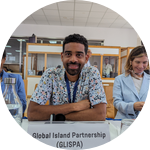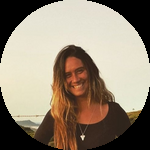About This Project
This project will run a pilot program to understand the seasonality patterns that can influence the accumulation of microplastics, so that we can understand how the economic activities carried out in the region relate to the type of waste generated.Our Blue Hands Project will use a standardized methodology that is low cost and replicable.
Ask the Scientists
Join The DiscussionWhat is the context of this research?
Several marine observatories are incorporating marine pollution metrics into their environmental monitoring programs in order to meet stakeholder community needs and using co-design and collaboration to sustain regional data acquisition and surveillance networks. This project is looking for scale up with easy-to-replicate protocols, and science-based technology, high-quality information beyond education and communication. Active for 4 years, the project proving that through the dissemination of a standardized and replicable structure to monitor the accumulation of microplastics on sandy beaches, using a network of engaged citizens as a data collection nucleus, exponentially increases public awareness actions and co-creation of solutions by the community itself.
What is the significance of this project?
The Caribbean Large Marine Ecosystem is recognized as the most biodiverse region, as it contains numerous coastal and marine ecosystems, which provide critically important habitats for a diverse set of resident and migratory organisms These Small Island Developing States face geographic remoteness and isolation, and are more vulnerable when it comes to solid waste management. Building on the objectives of the Oceans Decade, including the recent negotiations of the Global Plastics Treaty, this project seeks to disseminate a low-cost and easily accessible methodology for acquiring data on plastic pollution, accelerating diagnosis and thus allowing the application of strategies to prevent and combat marine litter.
What are the goals of the project?
In order to promote inclusion and access to quality education, the project proposes the creation of an open and free course for the entire Caribbean region focused on microplastics and governance, supported by UNESCO.
Through face-to-face training, focal points responsible for data acquisition will be formed on different islands.
Data acquisition should take place over a minimum of 6 months, and in parallel, actions in partnerships with local NGOs should work together with schools and universities to create a wave of awareness events. The project is responsible for creating a specific report with guidelines and indicators to prevent marine litter in that region.
Budget
The online course will be produced by a team of experts and offered free of charge to the Caribbean Islands. The in-person training will also use the amount to assemble the kits that will be used in collections. The value of the scholarships is to engage young people on the Islands to get involved in environmental projects in their communities and schools, in addition to being able to provide opportunities for beach cleaning actions, or even small events such as open-air cinema, workshops, events with fishermen promoted by local NGOs. The idea is that this grant is the beginning of a long-term project and that along the way it can compete for new resources to finance future developments.
Endorsed by
 Project Timeline
Project Timeline
The online course will be available for 1 month. After the course, students from the Caribbean will be invited to participate presential stage; The samplings must occur monthly for 6 months (until December). The cleaning actions and with local NGOs (focal points) will be carried out at intervals of 1 month each, the idea is to coordinate with NGOs before the in-person stage to define the best moments and events, as well as the schools that will participate in the actions.
May 21, 2024
Project Launched
Jul 31, 2024
Online Course Microplastic
Aug 31, 2024
Presential Trainning
Sep 29, 2024
Locals Actions Schools/NGOs - 1
Oct 30, 2024
Locals Actions Schools/NGOs - 2
Meet the Team
Ana Carolina moreira de oliveira
Environmental manager, educator, and researcher focused on marine pollution and microplastics, with a particular interest in the role of mangroves as natural barriers and filters. Works at the intersection of science, environmental education, and community engagement, developing projects that connect applied research, ocean conservation, and ocean literacy through inclusive and nature-based approaches.
Additional Information
You can find more information in the links below:
Our Blue Hands: Building a microplastic network monitoring - Ocean Decade
Our Blue Hands: Scientific and Technical Reports (globalislandpartnership.org)
Project Backers
- 0Backers
- 0%Funded
- $0Total Donations
- $0Average Donation

